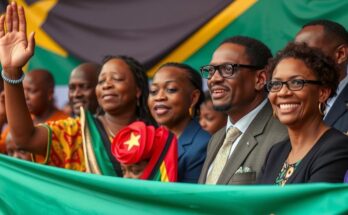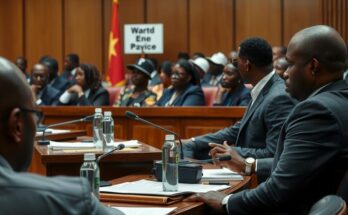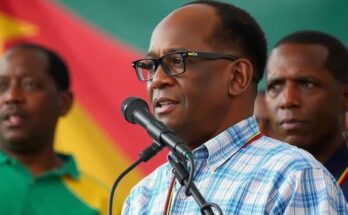Uruguay is set for a second-round presidential vote between Yamandu Orsi and Alvaro Delgado, with polls indicating a tight race. The country’s political climate remains stable, contrasting with regional tensions. Uruguayan voters face decisions influenced by the previous government’s performance and rising living costs.
In a significant electoral event, Uruguay, a country celebrated for its political stability and progressive policies, is preparing for the second round of presidential elections. With approximately 3.4 million residents, voters will choose between opposition center-left candidate Yamandu Orsi and conservative candidate Alvaro Delgado, who has received endorsements from allied parties. Public sentiment suggests a remarkably close race, with projections indicating the potential for a margin of fewer than 25,000 votes separating the two candidates.
Uruguay has a unique political landscape that contrasts sharply with the polarized politics observed in neighboring countries like Argentina and Brazil. The 2023 elections are notable for the absence of extreme political divides, allowing for substantial cooperation between traditionally opposing coalitions. Mr. Orsi represents the Broad Front, advocating for a modern left approach without drastic policy changes, while Mr. Delgado seeks to maintain continuity from the current government’s policies, as he leans on the popularity of President Luis Lacalle Pou, who cannot run for re-election due to constitutional restrictions.
As Uruguay approaches this pivotal election, both candidates aim to capture the support of undecided voters and those who favored smaller parties in the first round. The outcome remains uncertain, but the lack of strong opposition to the current government’s performance may favor Delgado, despite the global trend of incumbent parties losing favor in elections. Therefore, Uruguay’s political future appears poised between continuity and change as citizens prepare to cast their votes.
Original Source: www.ndtv.com




